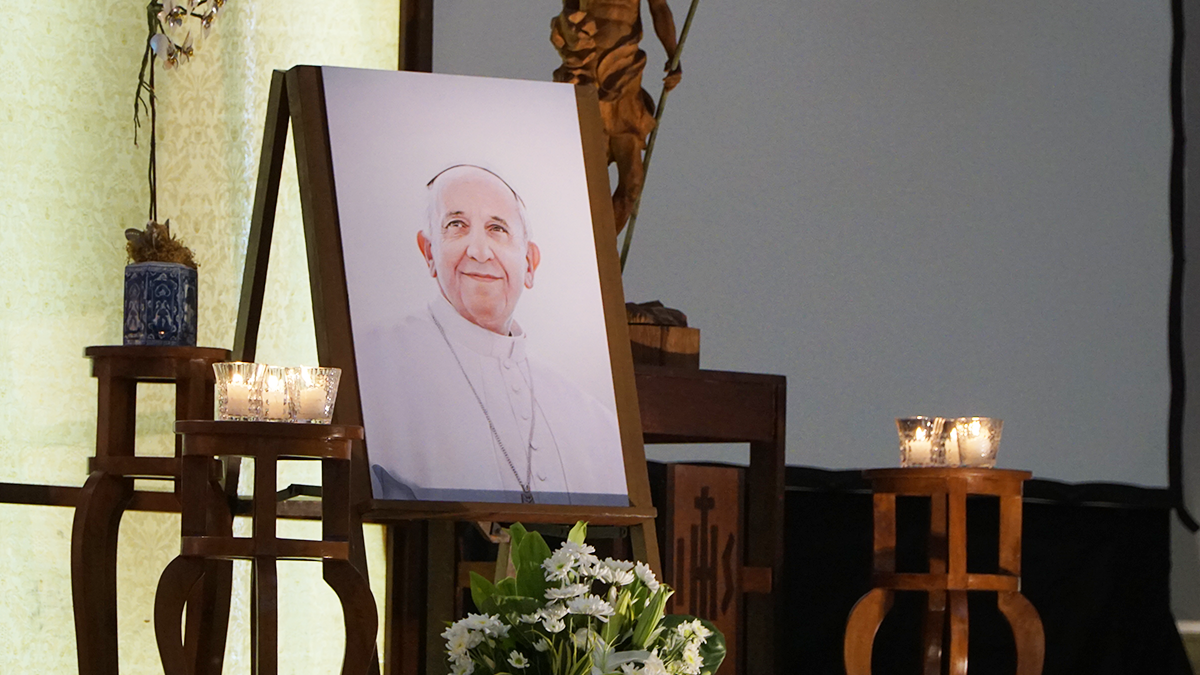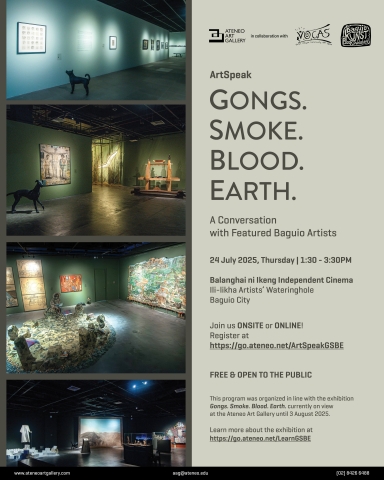Homily: Eucharist in Grateful Memory of Pope Francis, Church of the Gesù – Rome
02 May 2025 | Father General Arturo Sosa
Homily by Father General Arturo Sosa during the Eucharist in Grateful Memory of Pope Francis, at the Church of the Gesù - Rome, on Thursday, 24 April 2025.
Dear brothers and sisters,
There are many ways to approach the life of Pope Francis, who wore the sandals of the fisherman, those of the Apostle Peter, in the style of Jorge Mario Bergoglio. A style that was formed and matured over many years of formation, service, and generous dedication – first in the religious and priestly life of the Society of Jesus, then in his episcopal service to the Archdiocese of Buenos Aires and the Latin American Church. Finally, his service to the universal Church as the Bishop of Rome, which includes the demanding Petrine ministry of promoting the unity of all God’s People in service to the mission of the Lord Jesus Christ.
Pope Francis was a man shaped by the experience of the Spiritual Exercises of St Ignatius of Loyola. Through them, we can glimpse the authentic style of his life and his service to God’s People and all humanity.
The presupposition of the Spiritual Exercises was embodied by Francis in his steadfast conviction to practice and invoke dialogue as a fundamental tool for building authentic relationships, overcoming conflicts, and fostering reconciliation. Dialogue begins with the recognition of differences as a starting point, and “saving the other’s proposal” is the beginning of walking together to find a shared solution.
The Principle and Foundation was undoubtedly its cornerstone. Francis’s life was built on the rock that is Christ, not on the sand of his own ideas or intuitions. Keeping Jesus at the centre of his life ensured that he recognised God as the only absolute and “healed himself” from any idolatry, abundant and attractive in the contexts where he lived. When he confirmed the Universal Apostolic Preferences for 2019-2029 as the mission of the Society of Jesus, he clarified that, to illuminate our life-mission, they must be founded on the first of these Preferences: to show the way to God through the Spiritual Exercises and discernment. The way to God can only be shown by those who are walking it and experiencing the Lord at work in their lives, who are able to discern the promptings of the Spirit amid the complexity of history.
Pope Francis never hid his fragility and never succumbed to the temptation of pretending to be strong. The first week of the Exercises led him not only to recognise himself as a sinner, to confess his weaknesses and ask for forgiveness, but also to experience God’s mercy and to lean on the prayers of his brothers and sisters. From the awareness of his weaknesses arose that litany, repeated in so many interactions: "Do not forget to pray for me." He asked for this because he felt sustained by the prayers of the People of God. Many times, he reiterated his need to approach the sacrament of reconciliation and urged all of us to do so often. Hence also his insistence that ordained ministers reflect the merciful face of God and avoid judging, instead welcoming everyone with open arms – everyone, everyone, everyone.
The experience of the second week of the Exercises is evident in Pope Francis’s life and witness. He came to know Jesus through the regular contemplation of the Gospels. He loved Jesus, the friend, the confidant – the Jesus whom he met in Ignatian colloquies, where he learned to open himself fully and receive the grace necessary to carry out his mission. His papal motto proclaims it: miserando et eligendo (by having mercy and by choosing). Like the tax collector Matthew, Jorge Mario Bergoglio experienced how the Lord was merciful and chose him among His disciples. For the rest of his life, he never ceased to grow in that familiarity with Jesus, which led him to overcome weaknesses by increasing his trust in Him, until he placed himself entirely in God’s hands.
The contemplation of the Incarnation led Francis to adopt a universal gaze, thus choosing to participate in the redemption of the world. This Trinitarian gaze is capable not only of seeing the complexity and richness of human life but also of leading us to sympathize with it. Men and women, boys and girls, young and old of rich cultural diversity, living in the most varied situations, varying between health and illness, joy and sorrow, war and peace – united by the dream of a better world. This contemplation led the One and Triune God to decide on the incarnation of the second Person, who, stripping Himself of every privilege, suffering even unto death, opened the way to God the Father, in whom we can all become sisters and brothers.
The meditation on the two standards inspired his identification with Jesus incarnate in poverty and humility. It taught him to encounter the Lord on the margins of society, in the faces of migrants, the homeless, the unemployed, or those who receive a salary that does not last the month… It taught him to let go of the desire for honours and to accept humiliation for the sake of the Gospel.
Choosing the way of Jesus leads to facing the mystery of the cross. It leads to accompanying Jesus as He washes His disciples’ feet to give them an example of service to their brothers, as He breaks bread and shares out wine to signify their surrender to the last drop of blood – He takes upon Himself the sin of the world. He opens His arms on the cross for me, that is, for each human being. As he contemplates the crucified Jesus, Francis’s gaze shifts to the crucified of this world, and his desire to accompany the Lord brings him to the same cross, from which he can contemplate the greatness of the challenge to transform the world and, therefore, choose to join his dedication to that of Jesus.
From the women who went to the tomb and found it not only open but empty, he learned not to seek among the dead the One who lives and to experience the consolation of encountering the crucified Master now risen. Consolation that opens the eyes of the heart to understand what the prophets announced, to experience the fire of unconditional love, to embrace Him in the breaking of the bread, and to join the community of disciples, among whom the Lord appears to confirm them, as Luke tells us in the Gospel scene we hear in this celebration.
The inner joy of experiencing the Crucified and Risen Christ removes the fear of bearing witness to what has forever changed his life. From then on, Jorge Mario Bergoglio consecrated his life to sharing the joy of the Gospel. Elected to the Petrine ministry, Francis is not afraid to go against the tide in defence of human rights or in the struggle to reverse human actions that harm the environment. With words and gestures, he invites us to welcome migrants as brothers and sisters, to draw near to those in prison and those discarded by society. His voice constantly cries out for peace and underscores how every war is a failure of humanity. Dialogue is the path to building just relationships, while violence destroys bridges between peoples. As spaces for democratic participation shrink worldwide, Francis pushes the Church toward synodality – that is, to broaden spaces for participation so that we may become a people walking toward the promise of a world where we can live fraternally.
The spiritual experience synthesised in the Spiritual Exercises of St Ignatius, internalised in the life of Jorge Mario Bergoglio, Pope Francis, culminates in the sensitivity that allows finding God in all things. The contemplation to attain love opens all the senses to perceive the presence of the Lord in every aspect of personal and social life, in nature and in history. This is why his words, gestures, lifestyle, and acknowledgment of his fragility… lead him to place all his trust in God and in Him alone.
Our brother and Pope, Francis, is now entirely in God’s hands. Let us allow his witness to continue inspiring the Church to share in the redemptive mission of Jesus Christ and the Society of Jesus to desire in all things to love and serve.





